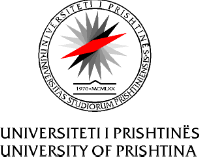Kosovo - Kosova Crisis |
350 Fifth Ave. 34th floor
NY, NY. 10118
Telephone: 212-290-4700
Facsimile: 212-736-1300
E-mail: hrwnyc@hrw.org
FOR RELEASE: March 7, 1998
For further information contact:
Kenneth Roth, (212) 216-1201
Holly Cartner, (212) 216-1277
Human Rights Watch Calls on Yugoslav War Crimes Tribunal to Investigate Possible War Crimes in Kosovo
(New York - March 7, 1998) Human Rights Watch today called on the
International Criminal Tribunal for the former Yugoslavia to launch
an immediate investigation into possible war crimes being committed
by Serbian security forces in Kosovo. In a letter sent today to
Louise Arbour, Chief Prosecutor of the Tribunal, HRW Executive
Director Kenneth Roth urged the Tribunal to investigate arbitrary
and indiscriminate attacks against civilians and the possible
summary execution of detainees. "By opening an immediate
investigation into the apparent war crimes being committed in
Kosovo, your office would signal that the Tribunal's jurisdiction
extends to these atrocities and, we hope, help to curtail them,"
said the letter.
Full text of the letter follows.
Open Letter to Judge Louise Arbour
Chief Prosecutor,
International Criminal Tribunal
for the former Yugoslavia
Judge Louise Arbour
Chief Prosecutor
ICC
Church illplein 1
PO Box 13888
2501 EW Den Haag
The Netherlands
Dear Judge Arbour,
Human Rights Watch is writing to express its grave concern about recent Serbian military actions in the region of Kosovo. Evidence strongly suggests that war crimes are being committed, including arbitrary and indiscriminate attacks against civilians and the summary execution of detainees. We call on you to launch an immediate investigation of theses apparent atrocities and to announce your office's intention to prosecute those responsible before the International Criminal Tribunal for the former Yugoslavia. Prompt action by your office can help deter further atrocities and save lives.
On February 28, 1998, Serbian police, paramilitaries, and possibly army units began a massive assault on a triangle of villages in Kosovo's Drenica region, believed to be a base for the Kosova Liberation Army (KLA). Tanks and attack helicopters have been used in what the Yugoslav government describes as "a sweep for terrorists." Human Rights Watch has received highly credible reports that Serbian forces have indiscriminately attacked civilians and other non-combatants, especially in the villages of Cirez, Likosane, Prekaz, and Lausha. The press has also reported that helicopters and armored vehicles sprayed village rooftops with gunfire before security forces entered the village on foot and fired indiscriminately into private homes. In some cases, the Serbian security forces reportedly came under fire from unidentified individuals, possibly from the private homes, and it appears now that a battle between the KLA and Serbian forces has begun. Foreign journalists have seen the bodies of six victims, including a pregnant woman, Rukia Nebihi, who had been shot in the face, and four brothers from the Sejdiu family, two of whom had been shot in the back. Thus far, twenty-four ethnic Albanians are confirmed killed, although the precise number is unknown since humanitarian aid organizations and journalists have been denied access to the region.
According to the Prishtina-based Council for the Defense of Human Rights and Freedoms, ten members of the Ahmeti family and two of their guests, Behram Fazliu and Shaban Muja, were killed by Serbian security forces after having been detained, although this has not been independently confirmed. According to the Serbian government, the police confiscated a large amount of weapons and arrested a number of people, although their whereabouts and the charges against them are currently unknown. Four Serbian policemen were also killed during the action.
Human Rights Watch recognizes that the authorities may have to use force when confronted with an armed attack, but attacks against civilians and the summary execution of anyone in detention is a war crime, a severe violation of international humanitarian law. Given the level of armed conflict that has now broken out in Kosovo, common Article 3 of the Geneva Conventions, which governs internal armed conflicts, clearly applies. It requires that civilians and other protected persons be treated humanely, with specific prohibitions of murder, torture, and cruel, humiliating or degrading treatment.
The violations of humanitarian law apparently being committed in Kosovo fall under the purview of the International Criminal Tribunal for the former Yugoslavia. Article 1 of the Tribunal's statute states that the Tribunal has the power to prosecute individuals who have committed violations of international humanitarian law on the "territory of the former Yugoslavia since 1991." Article 8 further specifies that the Tribunal's temporal jurisdiction "shall extend to a period beginning on 1 January 1991." There is no end point to this temporal jurisdiction. By opening an immediate investigation into the apparent war crimes being committed in Kosovo, and signaling that the Tribunal's jurisdiction extends to these atrocities, your office can help to curtail them.
Kenneth Roth
Executive Director, Human Rights Watch





